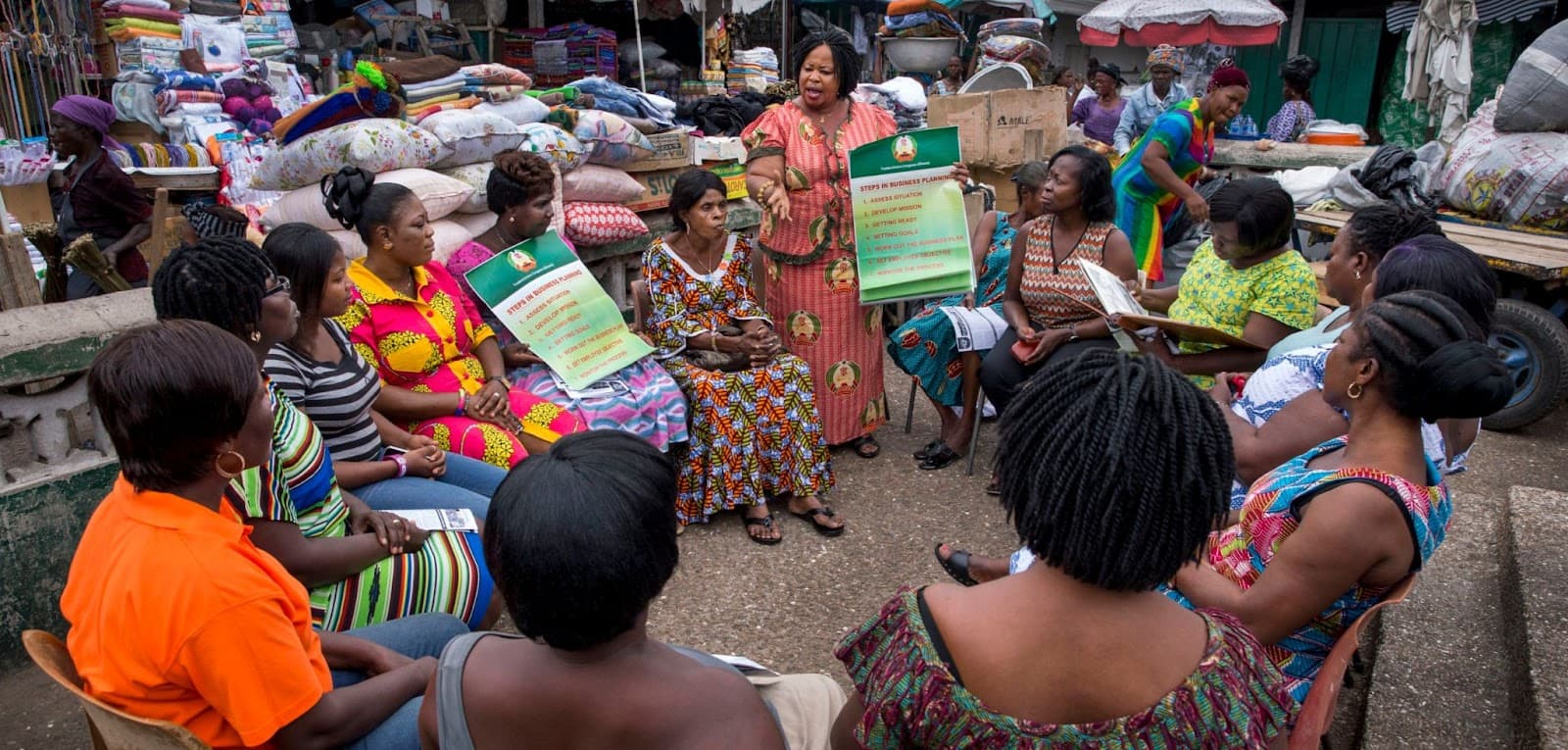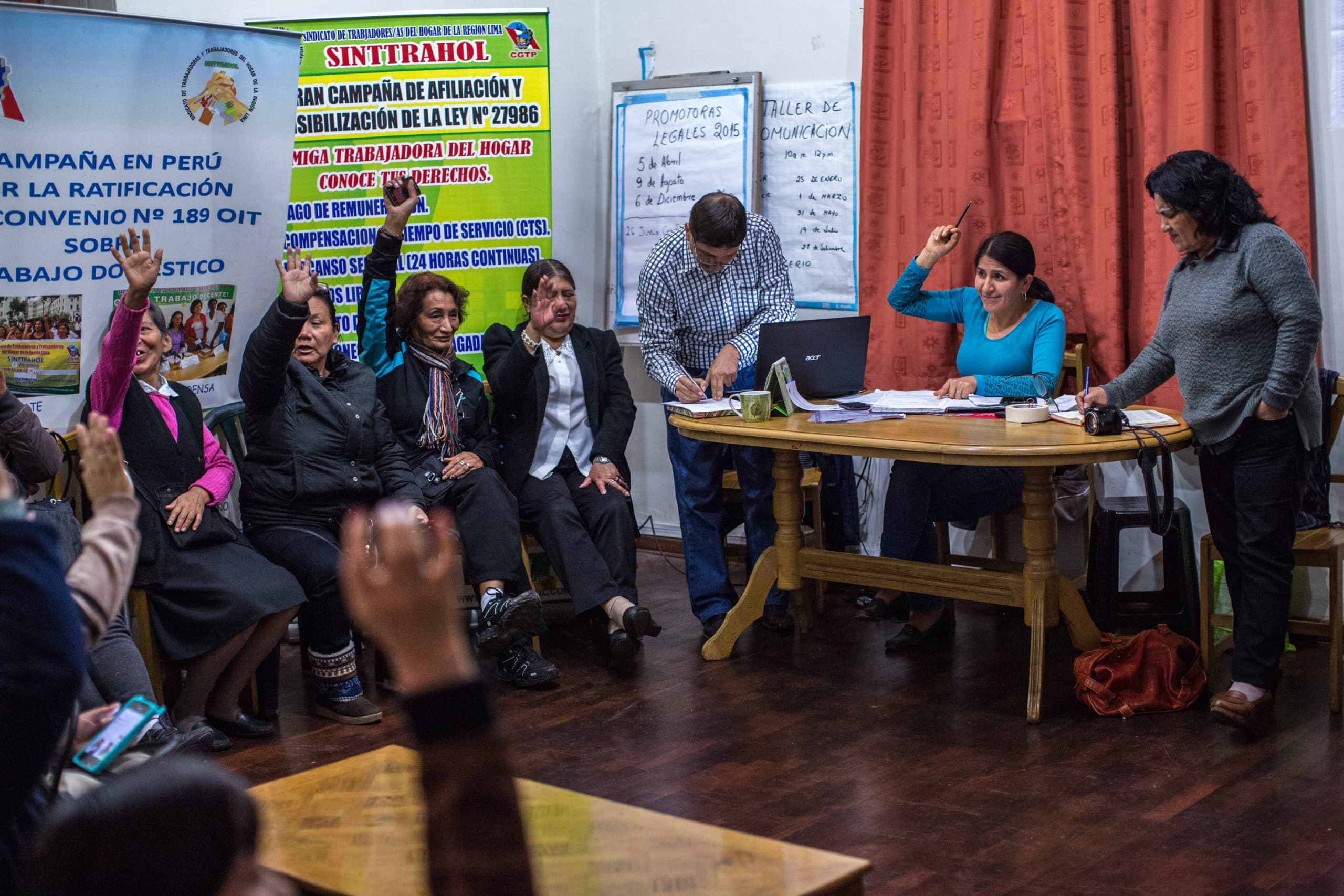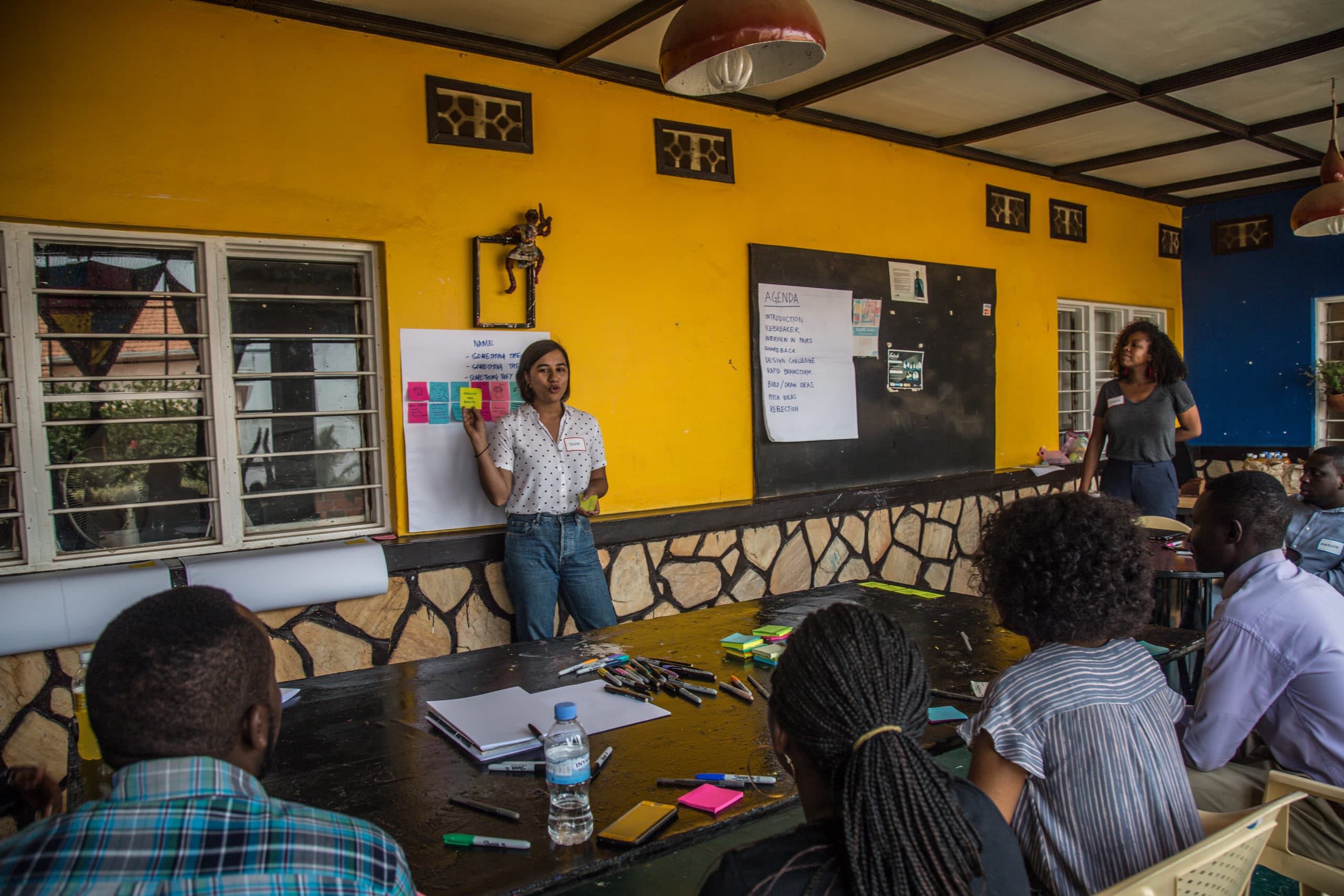
A just, equitable future of work begins with the voice of workers.
The Inclusive Labor Institute is a knowledge and action hub advancing the rights, lives, and livelihoods of workers in the informal economy.
About The Inclusive Labor Institute
The Global Fairness Initiative's Inclusive Labor Institute (ILI) is a worker-centered hub focused on the realities of work for more than 2 billion workers in the informal economy.
Lens
Worker-centered
Grounding research and action in workers' lived experience.
Focus
Informal economy
Especially where formal protections are weakest.
Approach
Knowledge & action
Pairing evidence with applied tools and collaboration.

What you'll find at ILI
A bridge between worker organizations, civil society, and public and private institutions.
- Evidence on the realities of informal work.
- Tools and learning offers for policy and practice.
- Spaces for dialogue with decision-makers.
ILI Resources
At a glance, explore the Institute's knowledge products, learning offers, and community spaces.
Knowledge
Research, briefs, and visualizations on informal work and worker voice to inform policy and programming.
- • Worker-led studies and briefs
- • Country and sector snapshots
- • Visual tools to support decision-making

In workers' own words
Short films from the Inclusive Labor Institute bring the realities and organizing of workers in the informal economy to life.
Knowledge Hub
Explore worker-led studies, briefs, and data from across the informal economy.

India, Ghana, Nepal +2
Towards Climate and Extreme Heat Resilience: Lessons from African and Asian Communities
This issue of Southasiadisasters.net, coordinated by All India Disaster Mitigation Institute and Inclusive Labor Institute, brings together powerful insights from Africa and Asia on how communities are confronting climate change and extreme heat. From informal workers adapting to rising temperatures and girls’ education strengthening long-term resilience, to community-led early warnings in Tajikistan, agroforestry in Ghana, and heat-safe urban practices in India, the issue showcases practical, scalable solutions emerging from the ground up. Featuring contributions from 16 authors across the region, it highlights one message clearly: communities are not waiting—they are innovating, adapting, and leading the way toward a more climate-resilient future. Find other issues of southasiadisasters.net here: aidmi.org/topic/southasiadisasters-net/

Uganda
Women, Work, and the Informal Economy in Uganda: What’s Holding Businesses Back?
This report presents the findings of the research study on the barriers to business formalization and entrepreneurship gaps and challenges faced by women in informal business in Kampala, Wakiso, Mayuge, and Mbarara districts, Uganda. The study was conducted by the Council for Economic Empowerment for Women in Africa, Uganda in Chapter (CEEWA-U) and the Uganda Hotels Food, Tourism, Supermarkets and Allied Workers’ Union (HTS-Union), commissioned by Global Fairness Initiative (GFI). The study is being implemented by GFI under the Grassroots Center for Women in Work (GCWW) initiative in Uganda. The purpose of this research was to examine why informal business owners are not transitioning to the formal sector as well as to understand the entrepreneurial and capacity gaps faced by women-owned informal businesses.

Ghana
Climate Adaptive Strategies of Rural Women in Upper East and West Ghana
This study, conducted in May 2025, explores the role of rural women farmers in strengthening agricultural productivity through climate change adaptation in Ghana’s highly vulnerable Upper East and Upper West Regions. Drawing on a mixed-methods design, which combined surveys with 628 farmers and 20 focus group discussions involving 160 participants, the research offers critical insights into the challenges, strategies, and outcomes of adaptation from a gendered perspective. Findings reveal that climate change is universally experienced among farmers in these regions, primarily through erratic rainfall patterns, prolonged droughts, and rising temperatures. The foremost challenge is financial, as the cost and limited availability of critical inputs, particularly improved seeds, prevent many farmers from fully embracing more effective strategies. Despite these barriers, the study highlights the tangible benefits of adaptation. Most farmers reported improvements in yields and household food security, and average farm income increased more than threefold. The study concludes that rural women farmers are at the forefront of climate resilience, actively contributing to food security and productivity despite structural and systemic limitations. Empowering rural women farmers by addressing these systemic constraints is not only a matter of equity but a strategic pathway to ensuring national food security and building resilient agricultural systems in the face of accelerating climate change.

Kenya, Uganda, Ghana
Grassroots Data Collection
The Inclusive Labor Institute (ILI) is a worker-led, Global South-based knowledge center on the conditions and experience of work for the 2 billion+ essential workers who power the informal economy and the future of work. ILI provides grassroots worker organizations and grasstops advocates a platform for sharing information and collaborating on opportunities to improve the standing, and strengthen the voice of informal workers. ILI empowers workers by expanding knowledge through a data-driven, grassroots-led approach and partners with organizations throughout the Global South to provide a comprehensive understanding on the conditions of informal worker, especially for women workers. Launched by the Global Fairness Initiative (GFI) and a coalition of grassroots partners, ILI provides a platform for engagement and access to data and information for Global South and Global North organizations alike. This includes online training tools, digital technology, and a catalogue of Institute-led and partner-sourced studies. Through the Inclusive Labor Institute, GFI give individuals and organizations tools, information and a collaborative space to advance labor rights, women’s empowerment and social and economic progress so that communities of promise can become centers of prosperity.
Stay Connected
We invite you to follow our work and join the conversation on our social channels.

